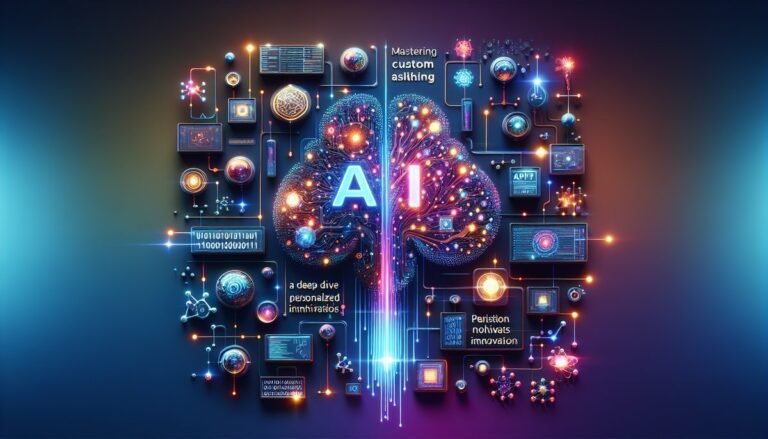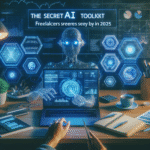In the rapidly evolving landscape of technology, the Trends Shaping Digital Transformation for 2025 are nothing short of revolutionary. As businesses and individuals alike strive to keep pace with the digital age, understanding these transformative trends is crucial. Whether it’s the seamless integration of AI into everyday operations or the rise of decentralized finance, these trends are poised to redefine how we interact with technology and each other. This article dives into the seven most impactful trends that are currently shaping the future of digital transformation. Each trend not only holds the promise of innovation but also offers practical insights that could change the way we work, live, and connect. Join us as we explore these trends, offering you a glimpse into the future and how you can harness these changes to stay ahead of the curve.
1. The Rise of Edge AI Computing
In 2025, Edge Computing is set to redefine the landscape of digital transformation. This trend is driven by the need for faster data processing and reduced latency, crucial for applications requiring real-time decision-making, such as autonomous vehicles and Internet of Things (IoT) devices. By bringing computation closer to the data source, Edge AI Computing enhances efficiency and offers a more robust infrastructure for digital operations.
As more enterprises adopt Edge AI, the demand for localized data centers that can handle complex AI tasks outside of traditional cloud environments will surge. This shift not only optimizes performance but also addresses privacy concerns by minimizing data transfers. Companies that integrate Edge AI into their operational frameworks will enjoy a competitive edge, underscoring its role as a key player among the trends shaping digital transformation.
2. The Dominance of AI-Powered Automation
AI-powered automation continues to transform industries by streamlining processes and enhancing productivity. As we approach 2025, this trend is expected to accelerate, with AI systems capable of handling more sophisticated tasks. From robotic process automation in manufacturing to AI-driven customer service chatbots, businesses are leveraging these technologies to reduce operational costs and improve service quality.
With the integration of AI-powered automation, organizations are witnessing a paradigm shift in how work is performed. By automating routine tasks, employees can focus on more strategic initiatives, fostering innovation. This transformation is pivotal as companies strive to remain competitive, further cementing AI’s influence on the trends shaping digital transformation.
3. Hyper-Personalization in Customer Experience
Hyper-personalization is emerging as a cornerstone strategy in enhancing customer experience. Fueled by AI and data analytics, businesses in 2025 will harness customer data to offer tailored experiences at every touchpoint. This trend is particularly evident in sectors like e-commerce and digital marketing, where personalized content and recommendations drive consumer engagement and sales.
AI algorithms analyze vast amounts of consumer data to discern preferences and behaviors, enabling businesses to anticipate needs and deliver customized offerings. This level of personalization not only boosts customer satisfaction but also fosters brand loyalty, making it an indispensable component of the trends shaping digital transformation.
4. The Expansion of AI Ethics and Governance
As AI becomes increasingly integrated into society, the importance of ethical considerations and governance structures cannot be overstated. By 2025, businesses and governments alike are expected to prioritize the development of frameworks that ensure ethical AI deployment. This trend reflects growing concerns over bias, transparency, and accountability in AI systems.
Organizations are investing in AI ethics committees and adopting guidelines to mitigate risks associated with AI applications. These efforts aim to build trust with consumers and stakeholders, highlighting the critical role of ethical governance in the trends shaping digital transformation. As AI continues to evolve, maintaining ethical integrity will be essential to sustainable technological progress.
5. AI-Driven Predictive Maintenance
Predictive maintenance, powered by AI, is revolutionizing asset management and operational efficiency across industries. By 2025, this trend is expected to gain further traction as companies seek to minimize downtime and reduce maintenance costs. AI algorithms analyze data from sensors and machinery to predict potential failures, allowing for timely interventions.
This proactive approach not only enhances equipment reliability but also extends asset life cycles. Industries such as manufacturing, energy, and transportation are already reaping the benefits of AI-driven predictive maintenance. As a result, it stands as a vital component of the trends shaping digital transformation, enabling businesses to optimize resources and improve overall performance.
6. The Integration of AI in Cybersecurity
With the escalating sophistication of cyber threats, AI is becoming an indispensable ally in cybersecurity strategies. By 2025, AI’s role in identifying and mitigating cyber risks will be more critical than ever. AI systems can analyze patterns and detect anomalies that may indicate security breaches, offering a proactive defense against attacks.
This AI-driven approach enhances the ability to respond to threats in real-time, protecting sensitive data and maintaining trust in digital systems. As organizations continue to prioritize cybersecurity in their digital transformation initiatives, AI’s integration into security protocols will be a defining trend shaping digital transformation efforts, ensuring resilience against evolving threats.
Navigating the Future of Digital Transformation and AI
As we look towards 2025, the landscape of digital transformation is rapidly evolving, with Artificial Intelligence taking center stage. Each trend identified in this listicle underscores the profound impact AI is poised to have on various industries, from enhancing personalization to revolutionizing data analytics. These advancements signal a shift towards more intelligent, adaptive systems that anticipate user needs and streamline operations. Embracing these changes requires a mindset that looks beyond traditional technologies, seeing AI not just as a tool, but as a catalyst for innovation. Businesses and individuals alike must remain agile, continuously exploring new opportunities that AI presents. As we forge ahead, the promise of AI to drive efficiency and creativity offers a compelling glimpse into a future where digital transformation knows no bounds.






